When is Ramadan this year?
Ramadan is set to begin on Monday, March 11th, 2024, and will end on Tuesday, April 9th, 2024. The celebration of Eid al-Fitr is expected to occur from the evening of Tuesday, April 9th, until Wednesday, April 10th, and is subject to the sighting of the new moon.
Surah Al-Baqarah, 2:183
- “O you who have believed, decreed upon you is fasting as it was decreed upon those before you that you may become righteous.”
Ramadan, the ninth month of the Islamic lunar calendar, is a time of fasting, prayer, reflection, and community for Muslims worldwide. During this sacred month, observers refrain from eating and drinking from dawn until sunset. One of the key aspects of successfully observing the fast is to ensure that the pre-dawn meal, known as Suhoor or Sehri, is nutritious and provides sustained energy throughout the day. In this article, we explore the top 10 best Ramadan foods to boost your energy while fasting.
Surah Al-Baqarah, 2:196
- And complete the Hajj and ‘umrah for Allah. But if you are prevented, then [offer] what can be obtained with ease of sacrificial animals. And do not shave your heads until the sacrificial animal has reached its place of slaughter. And whoever among you is ill or has an ailment of the head [making shaving necessary must offer] a ransom of fasting [three days] or charity or sacrifice. And when you are secure, then whoever performs ‘umrah [during the Hajj months] followed by Hajj [offers] what can be obtained with ease of sacrificial animals. And whoever cannot find [or afford such an animal] – then a fast of three days during Hajj and of seven when you have returned [home]. Those are ten complete [days]. This is for those whose family is not in the area of al-Masjid al-Haram. And fear Allah and know that Allah is severe in penalty.
Table of Contents
1. Nuts
Nuts are a fantastic source of nutrition, boasting an impressive nutrient profile that includes protein, dietary fiber, and healthy fats. They are an ideal food to consume for sustained energy and to prevent blood sugar spikes, which will keep you feeling full and energized throughout the day.
When it comes to selecting nuts for Suhoor, options such as almonds, walnuts, and pistachios are excellent choices due to their high nutritional value and unique flavor profiles. Almonds are a great source of vitamin E, while walnuts provide omega-3 fatty acids that are beneficial for heart health.
Pistachios, on the other hand, are rich in antioxidants, which help to protect the body against damage from free radicals. So, whether you’re looking for a quick snack or a more substantial meal, incorporating nuts into your Suhoor routine is an excellent way to boost your overall health and wellbeing.
2. Dates
Dates are a delectable and customary food to open your fast with, rich in vital nutrients that our body needs. They are a superfood that has been used for centuries due to their medicinal properties.
Dates are an excellent source of natural sugars, which provides an instant energy boost to our bodies. They are also a good source of fiber, vitamins, and minerals, which make them an excellent food choice for a healthy lifestyle.
Consuming one or two dates during Sehri can help maintain energy levels throughout the day, and their anti-inflammatory properties can reduce the risk of certain ailments.
3. Superfoods
Incorporating superfoods into your Suhoor can provide a wide range of nutrients, including vitamins and antioxidants, which are essential for maintaining energy levels. Berries, citrus fruits, avocado, and leafy greens like spinach or kale are excellent choices for a nutritious smoothie or meal.
- Berries like blueberries, strawberries, and raspberries are high in antioxidants that help keep your heart healthy.
- Citrus fruits are known for their high vitamin C content.
- Avocado provides healthy fats, fiber, and a creamy texture to smoothies.
- Spinach and kale are great sources of vitamins C, K, and plant-based iron.
- Oats and seeds (like chia seeds) can be added to bulk up your smoothie with complex carbohydrates, dietary fiber, protein, and iron.
- Milk of your choice can provide fat for energy-boosting Suhoor, especially if you’re not ready for a full plate of food.
4. Porridge Oats
Did you know that oats can be a great choice for Suhoor? They are packed with complex carbohydrates and dietary fiber, which means they release energy slowly and help keep you feeling full and satisfied throughout the day.
There are many delicious and nutritious ways to enjoy oats, including porridge, overnight oats, granola, and protein balls. If you’re looking for a quick and easy breakfast option, try making a bowl of warm oatmeal topped with your favorite fruits and nuts. Or, for a more portable option, you can make a batch of protein balls using oats, nut butter, and honey.
So why not give oats a try and see how they can help power you through your day?
5. Three-Bean Salad
Including a healthy three-bean salad in your Suhoor meal is a wise choice as it is loaded with protein and fiber, which can help keep you full and satisfied throughout the day.
Not only is it low in calories, but incorporating salads into your Ramadan diet can also have numerous benefits for your overall health.
For instance, it can aid in improving skin health and enhancing immunity, contributing to a healthier and happier you.
6. Stuffed Paratha
Stuffed paratha, prepared using whole wheat flour, has been a go-to option for Suhoor in various cultures for its rich taste and nutritional benefits.
Being high in fiber, it aids digestion and keeps you full for an extended period, making it an ideal breakfast option during Ramadan. This hearty meal provides the necessary energy to sustain you throughout the day, keeping you active and focused.
7. Casein Protein
Milk is a good source of two types of proteins – whey and casein. Although whey protein is more popular, slow-digesting casein makes up the majority of proteins in milk, accounting for around 80%. Protein is essential for muscle growth and repair, and it can also keep you fuller for longer because it takes more energy to digest than refined carbohydrates. However, it does not mean that protein uses up your energy, rather it provides a source that your body uses more gradually throughout the day.
The British Nutrition Foundation recommends that most people should consume 0.75g of protein per kilogram of their body weight, which means someone weighing 75kg would require around 56g of protein daily.
If you exercise daily, then it is worth considering consuming nutritionally complete food as an option to help meet your protein needs. Just like nutritionally complete food, it’s an option to consider if you’re choosing to exercise throughout Ramadan, or if your job or your lifestyle means you’re active throughout the day.
8. Manuka Honey
Manuka honey is a special kind of honey that is produced by bees that visit the Manuka bush, which is found only in Australia and New Zealand. This type of honey has natural antibacterial properties that can help support your general health.
To ensure that you get genuine Manuka honey, look for the MGO rating on the packaging as it indicates the potency of the antibacterial properties. Compared to refined sugar, Manuka honey has a higher ratio of fructose to glucose, which means it does not cause a spike in your blood glucose levels.
Additionally, Manuka honey has fewer carbohydrates and sugar and more protein than regular honey. You can enjoy Manuka honey in many ways, such as stirring it into tea, drizzling it onto desserts, or eating it straight from the spoon.
9. Hydration
During Ramadan, it is crucial to maintain proper hydration levels to ensure that you have enough energy throughout the day. To prevent dehydration and fatigue, it is recommended to drink plenty of water between Iftar and Suhoor.
In addition to drinking water, you can incorporate hydrating foods like watermelon, cucumbers, and soups into your Suhoor meal to increase your overall fluid intake. By following these guidelines, you can stay hydrated and energized during Ramadan.
10. Balanced Diet
During the month of Ramadan, maintaining a balanced diet is of utmost importance to ensure good health and sustained energy levels throughout the day. To achieve this, it is recommended to include a variety of nutrient-rich foods such as fruits, vegetables, whole grains, lean proteins, and healthy fats in both Suhoor and Iftar meals.
Overeating should be avoided, and instead, one should opt for foods that are dense in nutrients to keep energy levels stable throughout the day. By following these guidelines, one can maintain good health and stay energized during the month of Ramadan.
During the holy month of Ramadan, it is essential to select the right foods for Suhoor, which can help you to remain energetic and hydrated throughout the day. Adding a variety of nutrient-dense foods to your meals can offer the necessary nutrients and energy to keep you going.
By making conscious food choices and staying hydrated, you can make the most of this sacred month and preserve your health and well-being. This way, you can sustain yourself throughout the day and enjoy the blessings of Ramadan.
FAQ
How can I boost energy during Ramadan fasting?
To increase energy during Ramadan, focus on balanced meals that include complex carbs, protein, and healthy fats. Avoid sugary foods, which can lead to energy crashes. Stay hydrated and include foods rich in iron and vitamin C to combat fatigue.
Which foods provide energy during fasting?
Energy-rich foods for ramadan fasting include complex carbs like whole grains, fruits, and vegetables. Protein sources like lean meats, beans, and legumes can also help maintain energy levels. Healthy fats from nuts, seeds, and avocados provide sustained energy.
What’s the best diet during Ramadan fasting?
During Ramadan fasting, aim for a balanced diet with complex carbs, protein, and healthy fats. Include foods that release energy slowly, such as whole grains, legumes, and nuts. Stay hydrated and avoid excessive sugary or fatty foods.
What are some energy-boosting foods for fasting?
Energy-giving foods for fasting include whole grains like oats and brown rice, protein-rich foods like chicken and lentils, and healthy fats from avocados and nuts. These foods provide sustained energy throughout the day.
How can I combat tiredness during fasting?
To reduce tiredness during fasting, focus on eating balanced meals with complex carbs, protein, and healthy fats. Stay hydrated, get enough rest, and avoid overeating during non-fasting hours. Light exercise can also help boost energy levels.
Why do I feel weak during Ramadan fasting?
Weakness during Ramadan fasting can be due to dehydration, inadequate nutrition, or lack of sleep. Ensure you’re eating balanced meals, staying hydrated, and getting enough rest to support your body’s energy needs during fasting.
Resources
- https://en.wikipedia.org/wiki/Ramadan
- https://ing.org/resources/for-all-groups/calendar-of-important-islamic-dates/ramadan-information-sheet/
- https://www.brandeis.edu/spiritual-life/resources/guide-to-observances/ramadan.html
- https://en.wikipedia.org/wiki/Ramadan_(calendar_month)
- https://islamic-relief.org/ramadan/


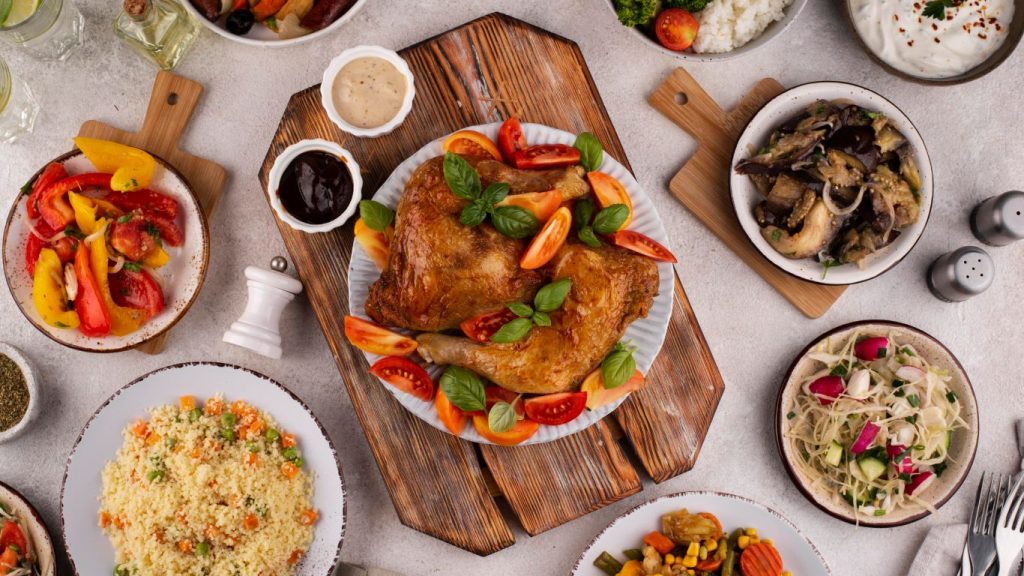
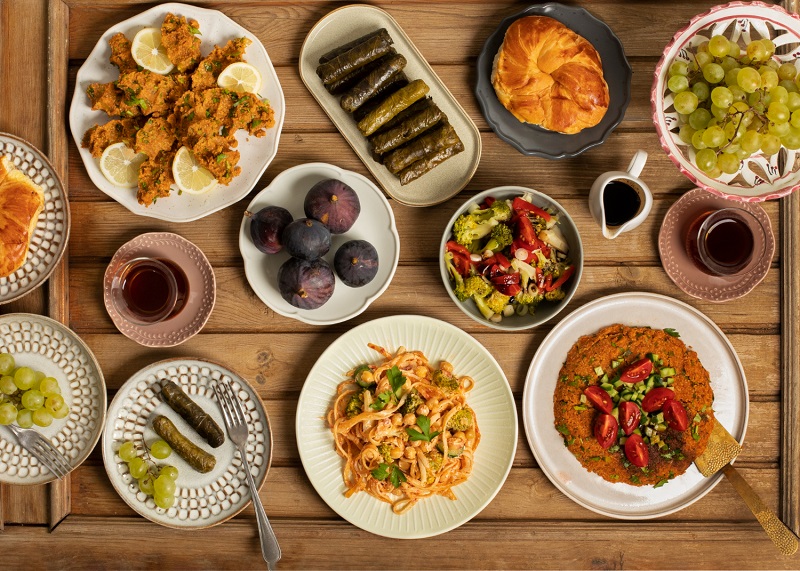

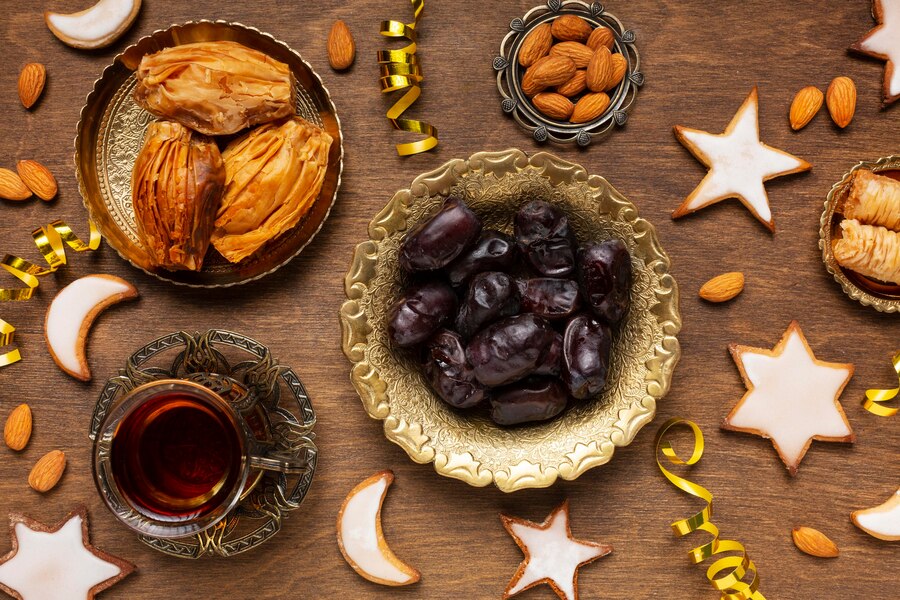
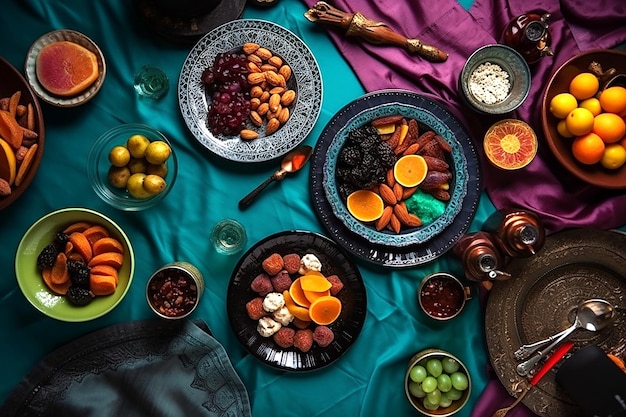

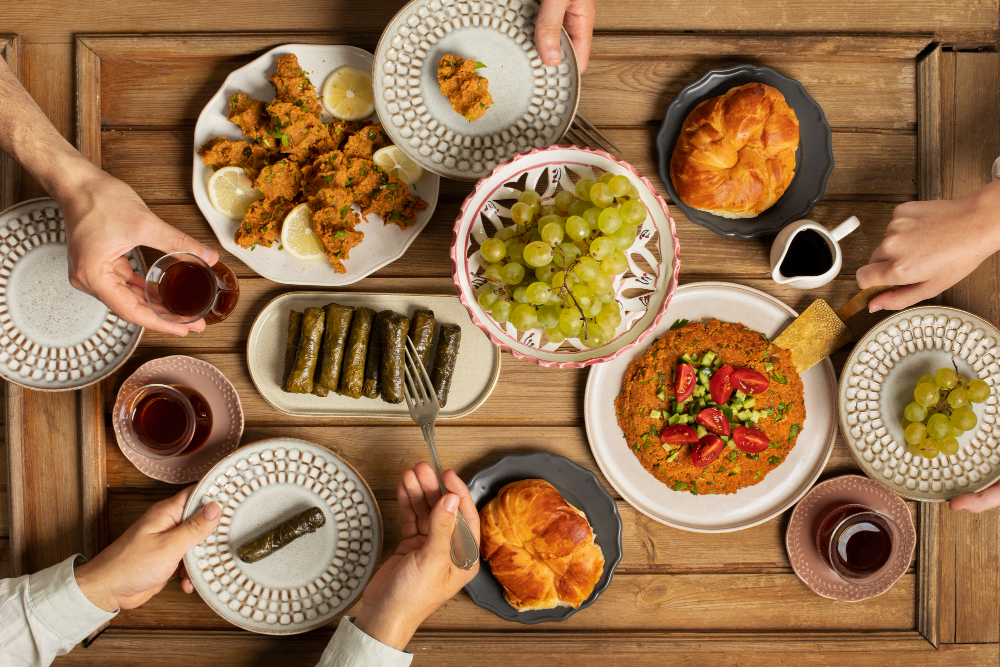
Your point of view caught my eye and was very interesting. Thanks. I have a question for you.